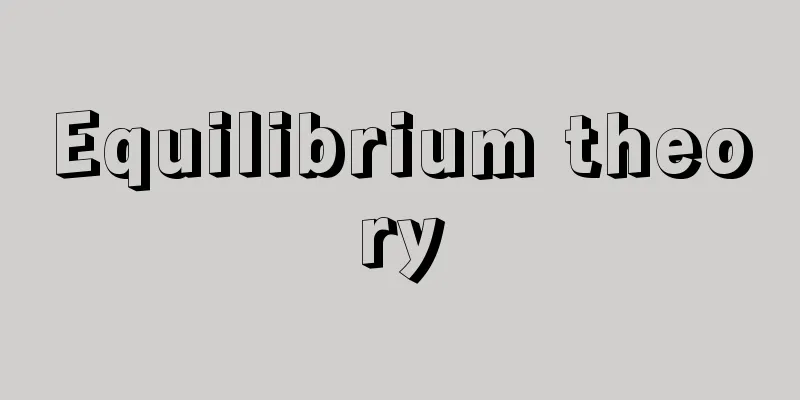Equilibrium theory

|
A theory used in social and political systems theory that considers a system to be in equilibrium or stable when the elements that make up the system are interrelated and interact in a way that does not cause fluctuations within the system. Therefore, the task of equilibrium theory is to analyze how certain elements or variables affect other elements or variables when they are displaced from equilibrium, and what conditions are required for equilibrium to be achieved again. Source: Encyclopaedia Britannica Concise Encyclopedia About Encyclopaedia Britannica Concise Encyclopedia Information |
|
社会システム論や政治システム論において取扱われる理論で,システムを構成している諸要素がシステム内に変動を引起さないような形で相互に関連し合って作用しているとき,その状態を均衡ないし安定と考える。したがって均衡理論の課題は,特定の諸要素あるいは変数が均衡から変位したとき,他の諸要素や変数にいかなる影響を与えるか,またいかなる条件がそなわっていれば再び均衡に達するかを分析することにある。
出典 ブリタニカ国際大百科事典 小項目事典ブリタニカ国際大百科事典 小項目事典について 情報 |
Recommend
El Greco
Born: 1541. Candia, Crete Died: April 7, 1614. Tol...
Hunayn bin Ishaq (English spelling)
808‐873 Johannitius, a Nestorian physician and tra...
Pénicaud (English spelling)
...At the end of the 15th century, émail peint, i...
Bibio tenebrosus (English spelling)
…Of these, the most common are the female red mos...
Casting vote
This refers to the casting vote held by the chair...
Minamoto no Tsunemoto - The origin of Minamoto
A military commander in the mid-Heian period, he ...
Kabbalah - Kabbalah
…Kabbalah (or Qabbālāh) is a Hebrew word meaning ...
Keicho gold and silver coins
Gold coins (oban, koban, ichibuban) and silver co...
Karikawa
The center of Shonai Town, Higashitagawa County, ...
Sugaya Later Collection - Kankekoshu
A collection of Chinese poetry by Sugawara no Mic...
Ptilocercus lowii (English spelling) Ptilocercuslowii
... There are 17 species in 5 genera in the tree ...
Big Ben
…The roof was made of steel and the building was ...
Local potential - local potential
…Any factor that causes a change in the resting p...
Shotokuji Temple - Shotokuji
This Otani-ha Shinshu temple is located in Naka-ku...
Bitters
Also called bitter. A Western liquor containing bi...









